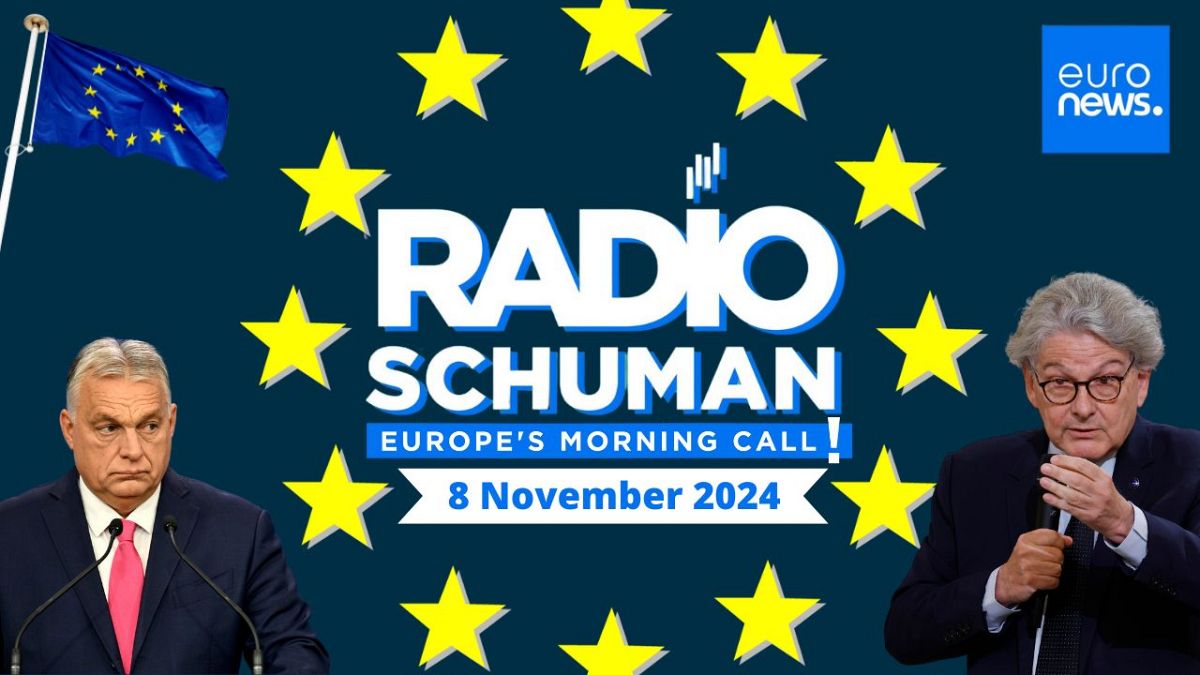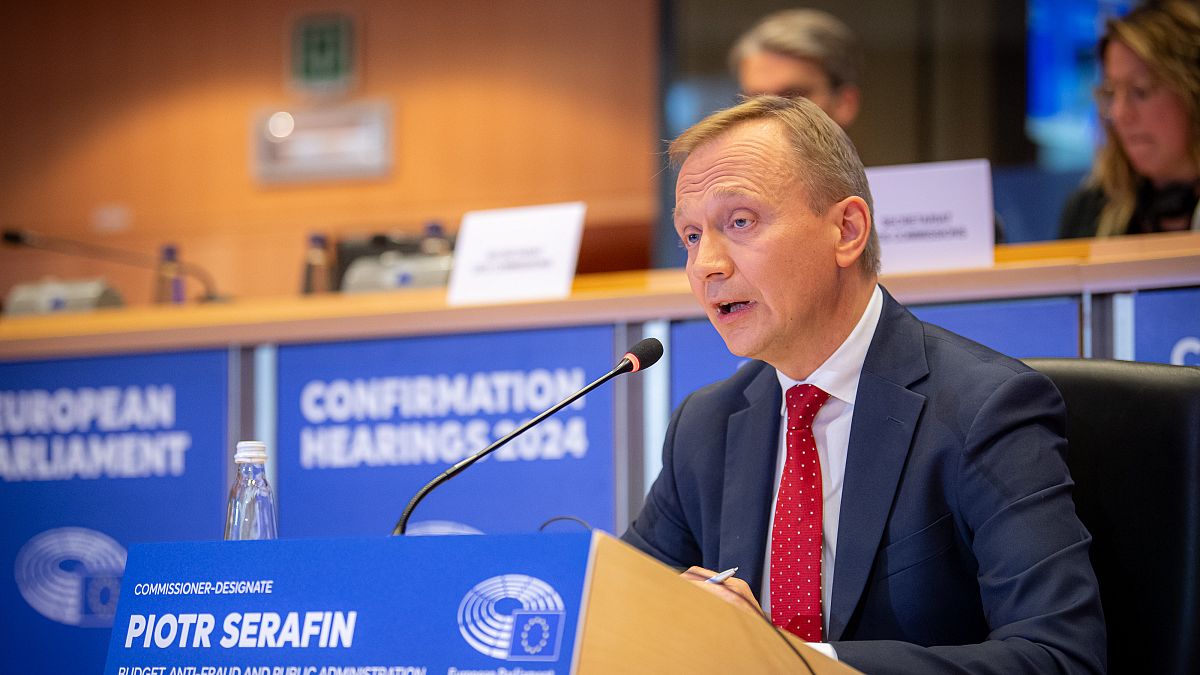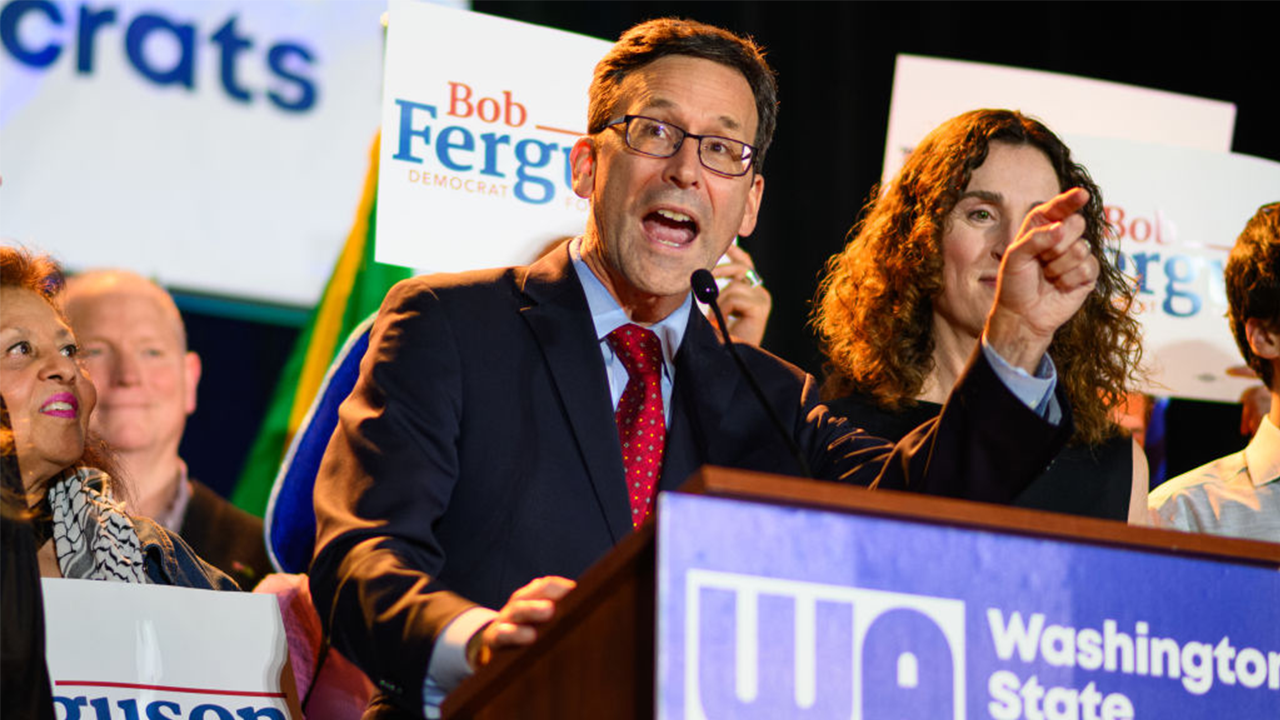World
Everything we know about the EU inquiry into Chinese electric cars
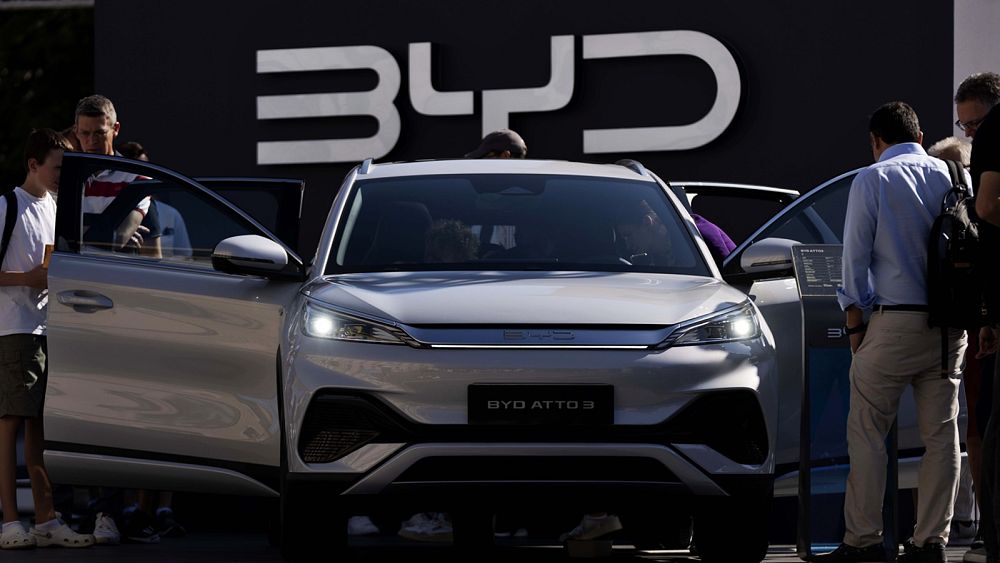
It was the big surprise of the State of the Union speech: the European Union is launching a trade inquiry into Chinese electric vehicles.
“Competition is only true as long as it is fair,” said Ursula von der Leyen, the president of the European Commission. “We have to be clear-eyed about the risks we face.”
This was von der Leyen’s unexpected announcement of a formal anti-subsidy investigation into China-made electric cars coming into the European market, which prompted applause from MEPs in the Strasbourg hemicycle on Wednesday.
“Global markets are now flooded with cheaper Chinese electric cars. And their price is kept artificially low by huge state subsidies. This is distorting our market,” she said. “And as we do not accept this distortion from the inside in our market, we do not accept this from the outside.”
But what exactly does this mean?
Pumping public cash
As the executive branch, the European Commission has the exclusive competence to set the EU’s common commercial policy and regularly launches probes into foreign imports that might harm the single market.
An anti-subsidy investigation is triggered when a foreign country is suspected of subsidising a company or group of companies to produce a certain product and this subsidy causes “injury” to the European industry.
Thanks to this generous state aid, the assembly costs are significantly offset and the company is therefore able to sell its product at a lower price.
The discount puts European businesses that sell a similar product at a great disadvantage because they do not receive the same level of support from their national governments and are left with two choices: either sell their goods at a lower price but risk losing money or sell their goods at a higher price but risk losing clients.
This is what appears to be happening with Chinese electric cars.
Beijing has long been accused by Western countries of pumping an excessive amount of public money into its domestic industry. The aid is hard to track down and can take many forms, including preferential lending, friendly taxation and direct transfers of funds.
By injecting subsidies, China ensures its national companies comply with the objectives set in its five-year economic plans. The current plan (2021-2025) explicitly mentions “new energy vehicles” as one of the pillars of the industrial system.
According to the European Commission, the continued lavishing has resulted in an average 20% price difference between China-made electric cars and their EU-made equivalents, meaning consumers can immediately detect a much lower price on Chinese brands when they go shopping for a clean vehicle.
China has the additional leverage of holding a dominant position in the raw materials needed for manufacturing batteries, such as lithium, cobalt, nickel and manganese, creating an all-encompassing environment in which China controls virtually every aspect of the supply chain. The inevitable result has been a dramatic surge in the assembly of China-made electric cars and a wave of exports all around the world.
The EU market is considered particularly attractive because of its gradual ban on the combustion engine and its 10% duty on all imported cars. By comparison, the United States applies a 27.5% rate and India a 70% tariff– essentially a ban.
The Commission estimates that Chinese brands, such as BYD, Nio and Xpeng, have already captured 8% of the European market for electric cars, up from 4% in 2021, and could get up to 15% in 2025 if the trend goes on uninterrupted.
The projection might be conservative. Just last week, Chinese carmakers reportedly stole the spotlight with their low-cost models at a massive auto show in Munich, leaving their German rivals looking like icons from a bygone era.
“China has its gaze set on the European market, with the potential to fundamentally change the face of Europe’s industries as we know it,” said Sigrid de Vries, the director general of the European Automobile Manufacturers’ Association (ACEA), in a blog post published last month. “It appears China’s strategic decision to invest early and along the entire value chain is paying dividends.”
Subsidies vs tariffs
Faced with an even bigger avalanche of cheap Chinese cars that could decimate European firms, which are struggling to cope with the plethora of economic woes unleashed by Russia’s war on Ukraine, Brussels is taking pre-emptive action.
“Europe is open to competition, but not to a race to the bottom. We must defend ourselves against unfair practices,” von der Leyen said.
In a sign of how serious the threat is, the Commission has launched the inquiry on its own initiative (ex-officio) rather than waiting for a member state to submit a formal complaint, as it usually happens in this type of trade case.
Once the investigation is notified in the EU’s official journal, the clock begins ticking: the Commission will have a maximum of 13 months to decide whether to impose so-called “countervailing duties” (in other words, trade tariffs) on Chinese electric cars or close the investigation without taking further steps.
The tariffs would come on top of the existing 10% import duty in order to compensate for the unfair advantage given by the subsidies. Their scope would depend on the evidence collected by the executive and the feedback provided by European firms.
If eventually approved, the tariffs would apply to all battery electric vehicles (BEVs) manufactured in China. This means European and American automakers that operate China-based factories, such as Volkswagen, BMW, Mercedes-Benz and Tesla, could be potentially slapped with duties if they benefit from Chinese state aid.
Member states would have the possibility to block the imposition of tariffs but only if they secure a qualified majority (15 countries representing at least 65% of the EU population).
Regardless of the final outcome, the launching of the investigation marks a significant escalation in EU-China relations, which had been strained since the COVID-19 pandemic and the outbreak of the Ukraine war. It also represents one of the first tangible consequences of “de-risking,” the strategy employed by von der Leyen to manage Beijing’s increasingly assertive behaviour without breaking off ties.
For Simone Tagliapietra, a senior fellow at Bruegel, an economics think tank, the Commission’s decision signals the willingness to use its arsenal of trade instruments “more proactively” to defend the homegrown industry and avoid past mistakes, a reference to how Europe’s solar industry was overtaken by Chinese competition.
“This is the start of a long journey,” Tagliapietra said in a statement. “It could ultimately work, but this must go in parallel with an active industrial policy to make EU industry quickly develop its competitiveness.”
VDA, the German Association of the Automotive Industry, offered a more careful assessment and called for a wider framework to stimulate investments and help companies cope with high energy costs, taxes, levies and excessive bureaucracy.
“Damages must be causally measured, and the common interest must be taken into account. Possible reactions from China must also be considered,” a spokesperson said.
Meanwhile, the China Chamber of Commerce to the EU (CCCEU) expressed its strong condemnation, saying the “substantial industrial edge” of Chinese vehicles was not the result of subsidies but of “innovation” and “cooperative partnerships.”
“We strongly encourage the EU to approach the progress of China’s electric vehicle industry with objectivity rather than resorting to unilateral economic and trade measures,” the CCCEU said, warning the tariffs could run counter to the World Trade Organization.

World
Manhattan's Top Federal Prosecutor to Resign Ahead of Trump Inauguration
World
Russian forces capture former British soldier fighting for Ukraine in Kursk: report
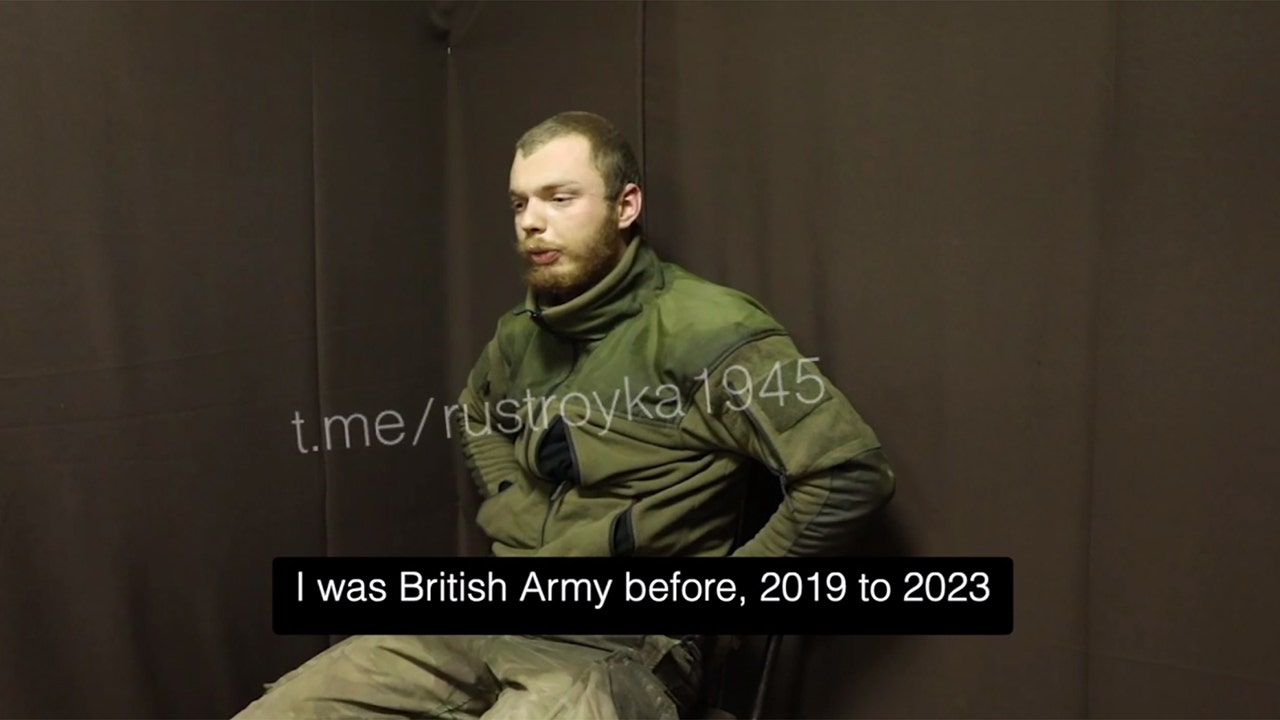
Russian forces captured a former British Army soldier who was fighting with Ukrainian troops in the Kursk region, according to reports on Monday.
In a video, the prisoner of war was sitting on a bench with his hand restrained as he identified himself as 22-year-old James Scott Rhys Anderson.
Russia’s Tass news agency reported on Monday that Russian security officials confirmed a British mercenary had been captured in the Kursk area.
“I was in the British Army before, from 2019 to 2023, 22 Signal Regiment,” Anderson told Russian authorities while being recorded. “Just a private. I was a signalman. One Signal Brigade, 22 Signal Regiment, 252 Squadron.”
RUSSIA TRICKS YEMENI MEN TO FIGHT IN UKRAINE UNDER HOUTHI SCHEME
Former British Army soldier James Scott Rhys Anderson was reportedly captured by Russian forces in the Kursk region while fighting for Ukraine. (Credit: East2West)
He expressed regret for joining Ukraine in its fight against Russia, explaining he had nearly lost everything.
When he left the military, he got fired from his job and applied on the International Legion (of Ukraine) webpage.
“I had just lost everything. I just lost my job. My dad was away in prison. I see it on the TV,” Anderson said while shaking his head. “It was a stupid idea.”
RUSSIA IS SUPPLYING HOUTHIS WITH SATELLITE DATA TO ATTACK SHIPS IN THE RED SEA: REPORT
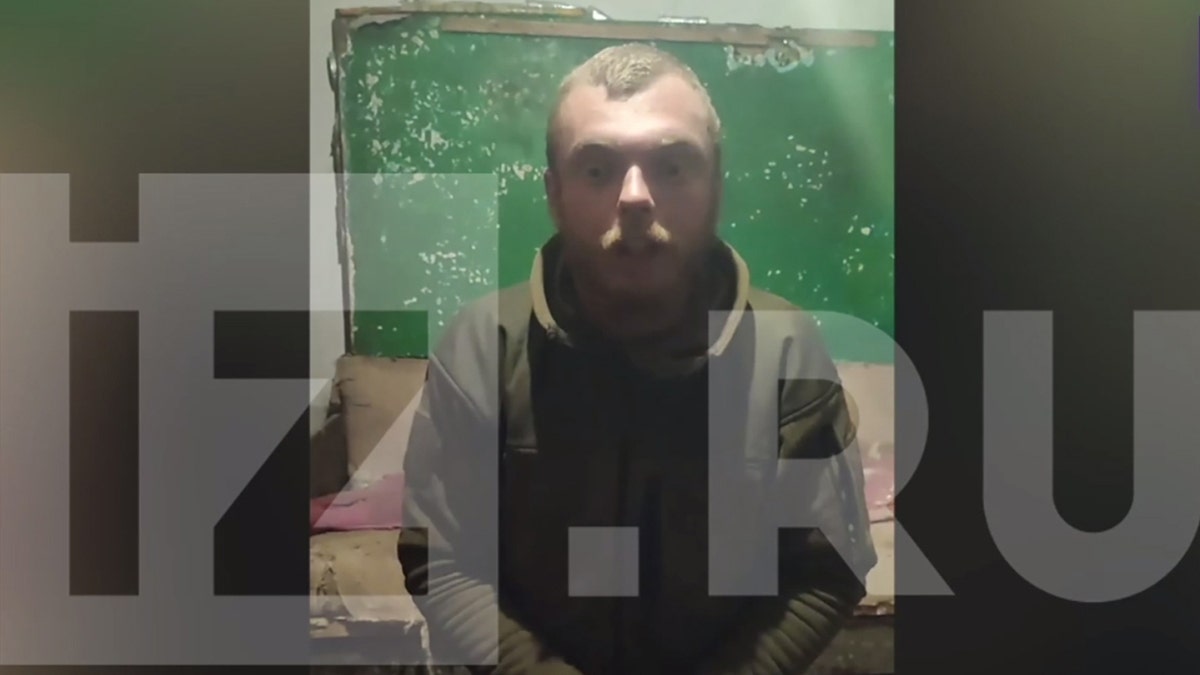
Former British Army soldier James Scott Rhys Anderson was reportedly captured by Russian forces in the Kursk region while fighting for Ukraine. (Credit: East2West)
The International Legion for Defense of Ukraine was created at the request of Ukrainian President Volodymyr Zelenskyy after Russia’s full-scale invasion of the country in February 2022.
The Associated Press reported that the Legion is a unit of Ukraine’s ground forces that mainly consists of foreign volunteers.
Anderson reportedly served as an instructor for Ukrainian troops and was deployed to the Kursk region against his will.
In the video, he said his commander took his stuff — passport, phone and other items — and ordered him to go to the Kursk region.
UKRAINE TO ANALYZE FRAGMENTS OF MISSILE FIRED BY RUSSIA CAPABLE OF CARRYING NUCLEAR WARHEADS

FILE PHOTO: Ukrainian servicemen hide from shelling, amid Russia’s attack on Ukraine, near the Russian border in Sumy region, Ukraine August 13, 2024. (REUTERS/Viacheslav Ratynskyi/File Photo)
“I don’t want to be here,” Anderson said.
The AP could not independently verify the report, but if confirmed, it said this could be one of the first publicly known cases of a Western national getting captured on Russian soil while fighting for Ukraine.
The U.K. Embassy in Moscow told the wire officials were “supporting the family of a British man following reports of his detention” though no other details were provided.
Anderson’s father, Scott Anderson, told Britain’s Daily Mail that his son’s Ukrainian commander informed him the young man had been captured.
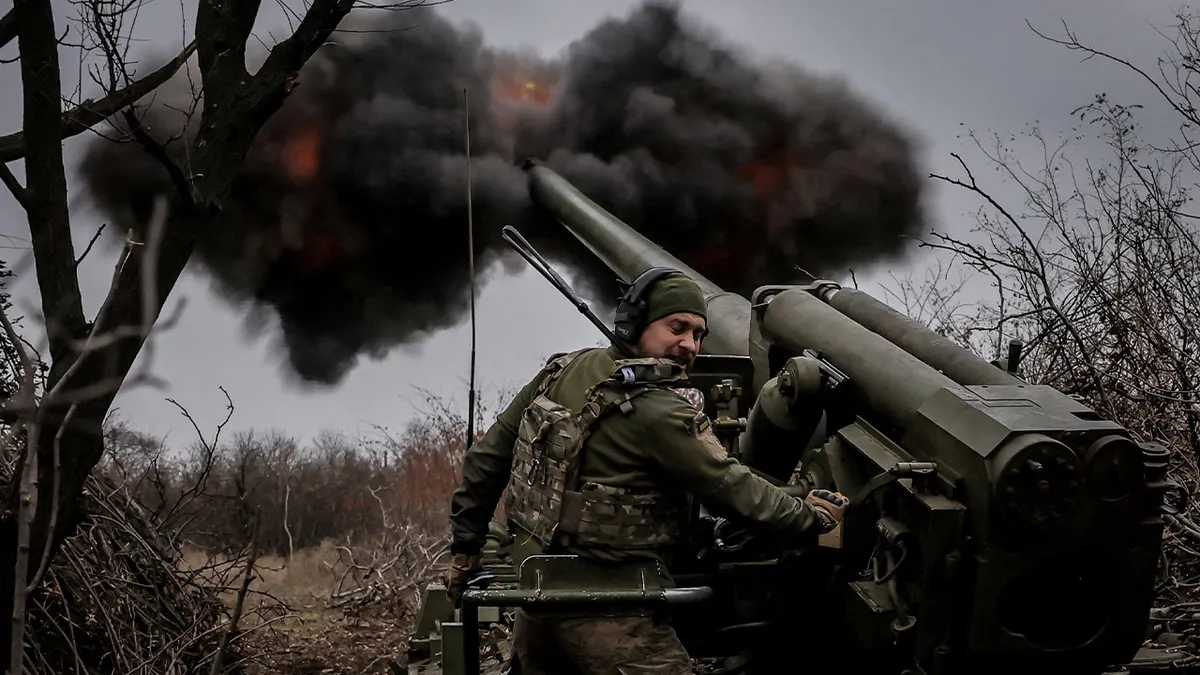
A serviceman of 24th Mechanized brigade named after King Danylo of the Ukrainian Armed Forces fires a 2s5 “Hyacinth-s” self-propelled howitzer towards Russian troops at a front line, amid Russia’s attack on Ukraine, near the town of Chasiv Yar in Donetsk region, Ukraine November 18, 2024. (Oleg Petrasiuk/Press Service of the 24th King Danylo Separate Mechanized Brigade of the Ukrainian Armed Forces/Handout via REUTERS )
The senior Anderson also said his son served in the British military for four years, worked as a police custody officer, and then went to Ukraine to fight. He told the paper he tried to convince his son not to join the Ukrainian military, and now fears for his safety.
“I’m hoping he’ll be used as a bargaining chip, but my son told me they torture their prisoners, and I’m so frightened he’ll be tortured,” he told Britain’s Daily Mail.
While being questioned, the younger Anderson talked about how he got to Ukraine from Britain, saying he flew to Krakow, Poland from London Luton. From there, he took a bus to Medyka in Poland, which is on the Ukrainian border.
Anderson’s capture comes amid reports Russia is recruiting hundreds of Yemeni men to fight in its war in Ukraine by luring them to Russia under false pretenses in coordination with the Houthi terrorist network, as reported by the Financial Times.
A senior Ukrainian defense official told Fox News that Moscow is trying to involve as many foreign mercenaries as possible in its war against Ukraine, whether from its allies or proxies in poor, impoverished countries.
The Ukrainian Ministry of Defense similarly confirmed the report to Fox News and said, “Russi[a] has escalated this war twice recently. First, when they brought North Korean fighters, and second, when they used [a] ballistic missile in Ukraine.”
Fox News Digital’s Caitlin McFall and Nana Sajaia, as well as The Associated Press contributed to this report.
World
German FM questions if DHL plane crash was 'hybrid incident'
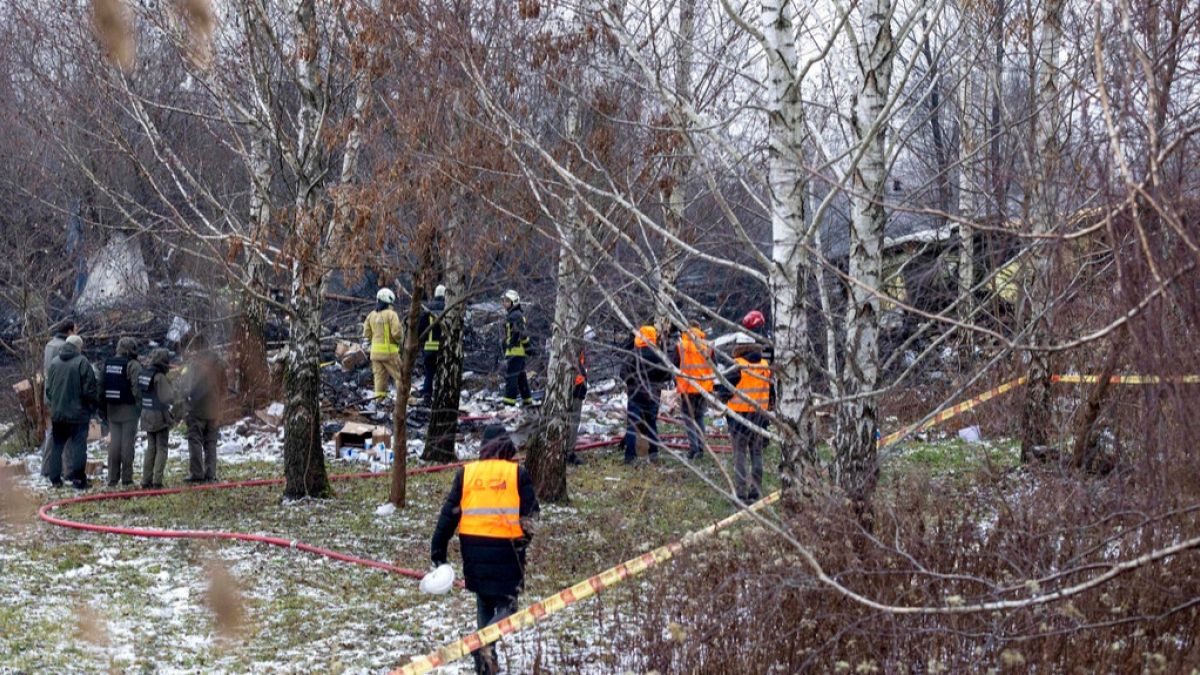
A cargo plane crashed into a house on its approach to Lithuania’s Vilnius Airport on Monday morning, killing one crew member and injuring others.
Authorities search for answers as they continue their investigation after a Boeing 737 cargo plane crashed into a house near Vilnius Airport in Lithuania on Monday morning.
The DHL cargo plane operated by Swiftair, departing from Leipzig in Germany, crashed while approaching the airport in Lithuania’s capital. A Spanish crew member was killed, and three other people on board were rushed to the hospital, one of them is in critical condition. No one on the ground was reportedly injured.
Speaking on the sidelines of the G7 Foreign Ministers’ meeting in Italy, Germany’s Foreign Minister Annalena Baerbock raised the question of whether the plane crash was a hybrid attack.
“We have to say at this point that we and our Lithuanian partners must now seriously ask ourselves whether this was an accident or, after last week, another hybrid incident. That shows what volatile times we are living in in the middle of Europe,” she said.
Lithuanian officials said one line of inquiry would examine Russian involvement but stressed that no evidence exists yet.
Last month, Western security officials warned that Russian military intelligence may be carrying out sabotage acts against nations in retaliation for their support to Ukraine.
Darius Jauniškis, the chief of Lithuania’s Intelligence, mirrored these concerns and said terrorism cannot be ruled out: “The State Security Department, together with the Department of Operational Services, have warned that these things are possible in the future. We see Russia becoming more aggressive.”
He added that however for now, “we really cannot make any attributions or point fingers at anyone, because there is no information about it.”
Lithuanian Defence Minister Laurynas Kasčiūnas said, “According to the information I have at the moment, I can say that there are no confirming facts that this was some kind of sabotage or terrorist incident. But the investigation will answer all the questions.”
The General Commissioner of the Lithuanian Police, Arūnas Paulauskas, chose not to speculate and said the cause of the crash might be the result of a technical failure or a human error. “But we are not aviation experts here to discuss this matter in such detail,” he added.
Paulauskas confirmed that investigators have visited the hospital, and will talk with the aircraft’s police and other aviation officials when they get the chance.
“As far as I know, the investigators have gone to the hospital. If there is an opportunity to communicate with the aircraft’s pilots to determine the initial causes, as well as with officials responsible for civil aviation.”
Experts say communication with Air Traffic Controller seemed ‘normal’
Several aviation experts who spoke to local media said they noticed nothing out of the ordinary when they listened to the communication between the crew and the Air Traffic Controller (ATC) that was shared online.
Aviation expert Vidas Kaupelis said it seemed there was “routine communication between the air traffic controller and the pilot”.
“They didn’t declare any emergency situation, they didn’t speak of any technical failures or fires,” the expert added.
The Chief of the Aircraft Accident and Incident Investigation under Ministry of Justice, Laurynas Naujokaitis, said German and Spanish investigators are due to arrive in Lithuania to assist local authorities with the probe.
“Currently we have an answer that a German safety probe institution is sending four investigators, Spain safety probe institution is sending two,” he said. “We are still gathering information regarding technical maintenance, meteorological, navigation and qualification information.”
-

 Business1 week ago
Business1 week agoColumn: Molly White's message for journalists going freelance — be ready for the pitfalls
-

 Science6 days ago
Science6 days agoTrump nominates Dr. Oz to head Medicare and Medicaid and help take on 'illness industrial complex'
-

 Politics1 week ago
Politics1 week agoTrump taps FCC member Brendan Carr to lead agency: 'Warrior for Free Speech'
-
/cdn.vox-cdn.com/uploads/chorus_asset/file/25739950/247386_Elon_Musk_Open_AI_CVirginia.jpg)
/cdn.vox-cdn.com/uploads/chorus_asset/file/25739950/247386_Elon_Musk_Open_AI_CVirginia.jpg) Technology1 week ago
Technology1 week agoInside Elon Musk’s messy breakup with OpenAI
-

 Lifestyle1 week ago
Lifestyle1 week agoSome in the U.S. farm industry are alarmed by Trump's embrace of RFK Jr. and tariffs
-

 World1 week ago
World1 week agoProtesters in Slovakia rally against Robert Fico’s populist government
-

 Health3 days ago
Health3 days agoHoliday gatherings can lead to stress eating: Try these 5 tips to control it
-

 News1 week ago
News1 week agoThey disagree about a lot, but these singers figure out how to stay in harmony



